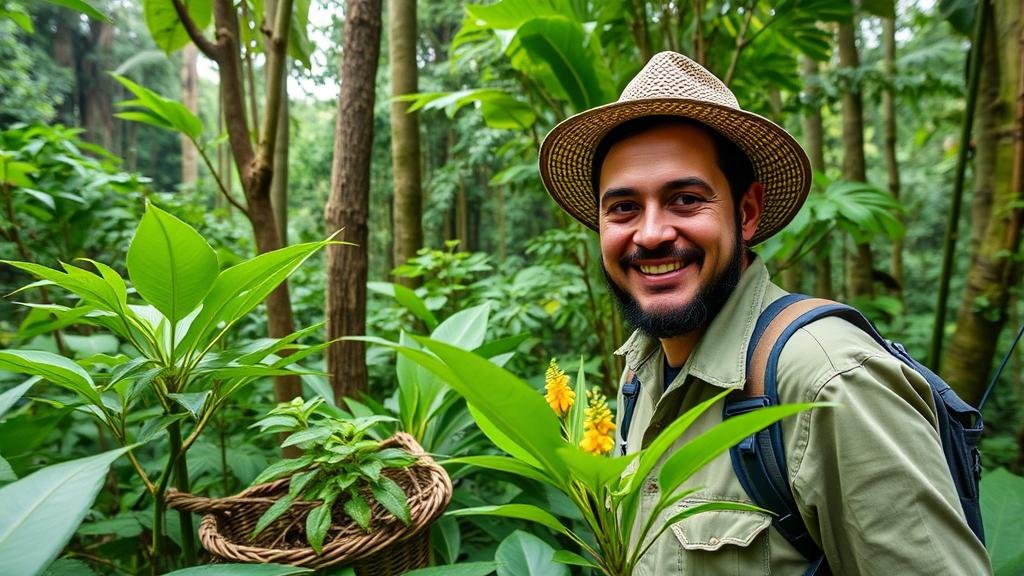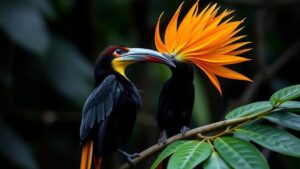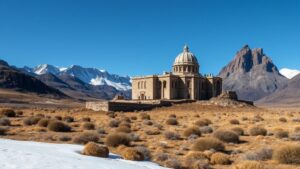Exploring the lush, untouched rainforests of the Congo Basin to document new plant species.
Exploring the Lush, Untouched Rainforests of the Congo Basin to Document New Plant Species
The Congo Basin, home to the second-largest rainforest in the world, is a biodiversity hotspot that has long captured the interest of botanists, ecologists, and conservationists alike. Spanning across six countries–Cameroon, Central African Republic, Republic of the Congo, Democratic Republic of the Congo, Gabon, and Equatorial Guinea–this ecosystem plays a crucial role in regulating the planets climate and sustaining an array of flora and fauna. As environmental threats intensify, exploring this cultural and ecological treasure is more critical than ever.
The Importance of the Congo Basin
With over 600 species of trees and 10,000 plant species, the Congo Basins rainforest is a vital repository of genetic diversity. According to the World Wildlife Fund, it encompasses forests that provide habitat for more than 400 species of mammals, 1,000 species of birds, and countless insects. Notably, this area also serves as a carbon sink, estimated to store over 20 billion tons of carbon, thus mitigating climate change.
Recent Expeditions and Discoveries
Recent research expeditions have unveiled a treasure trove of new plant species. For example, in 2020, a team from the Royal Botanic Gardens, Kew, embarked on an exploratory mission in the obscure depths of the Republic of the Congo. documented over 100 new plant species, significantly enhancing our understanding of the regions biodiversity.
- Example 1: The discovery of Rauvolfia congoleensis, a species in the Apocynaceae family, illustrates the unique medicinal potential present in these forests.
- Example 2: Another noteworthy find was Neocarya macrophylla, a fruit-bearing tree that was previously undocumented, which could contribute to local economies.
Challenges in Exploration
Documenting these new species is fraught with challenges. . The Congo Basin faces significant threats from illegal logging, mining, and agriculture, which not only leads to habitat loss but also limits access for researchers. A study by Global Forest Watch found that the Democratic Republic of the Congo lost approximately 1.1 million hectares of forest between 2000 and 2018 due to such activities.
Also, logistical challenges abound in navigating the dense rainforest, where terrain varies from swampy areas to steep hillsides, often creating barriers to exploration. Accessing remote locations generally requires meticulous planning, including the use of canoes or hiking, dependent on weather conditions. This includes understanding local ecosystems, as sudden tropical storms can disrupt research timelines.
Broader Implications of New Discoveries
Documenting new plant species in the Congo Basin does more than expand our knowledge of biodiversity; it can also inform conservation efforts and sustainable use of resources. For example, identifying indigenous plants with medicinal properties can lead to the development of new pharmaceuticals while promoting economic opportunities for local communities through the sustainable harvesting of these resources.
Plus, these discoveries can drive legislative changes aimed at protecting these ecosystems. As scientists and conservationists present their findings, they can advocate for the establishment of protected areas, ensuring that biodiversity is conserved for future generations.
Conclusion and Actionable Takeaways
The exploration of the Congo Basins rainforests is a vital endeavor, essential for understanding and preserving our planets biodiversity. While many challenges remain, the potential discoveries of new plant species can usher in advances in scientific knowledge and conservation efforts.
- Engage with Conservation Initiatives: Support organizations working toward the conservation of rainforests and biodiversity.
- Stay Informed: Follow new research findings about the Congo Basin on platforms such as the Royal Botanic Gardens, Kew.
- Promote Sustainable Practices: Encourage sustainable agricultural practices that benefit local communities while reducing environmental degradation.
As we look toward the future, the exploration of the Congo Basin remains a key frontier in understanding our planet’s lush, untouched ecosystems and their vital role in sustaining life on Earth.



